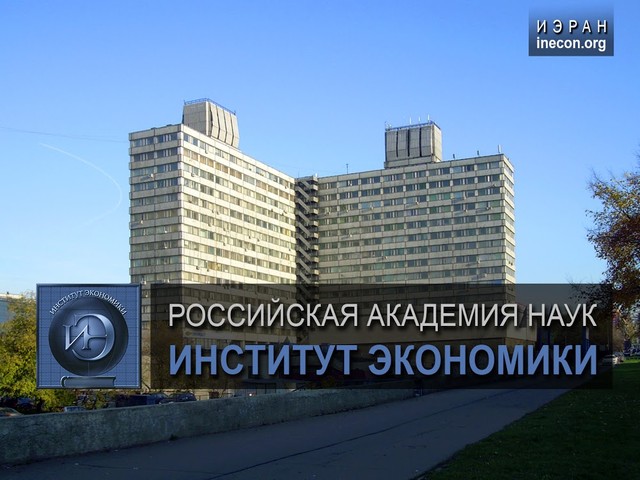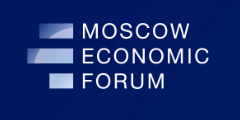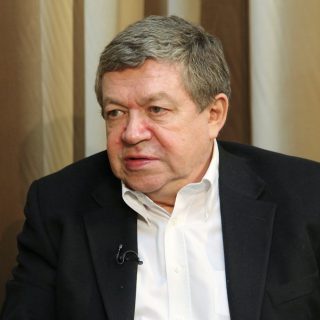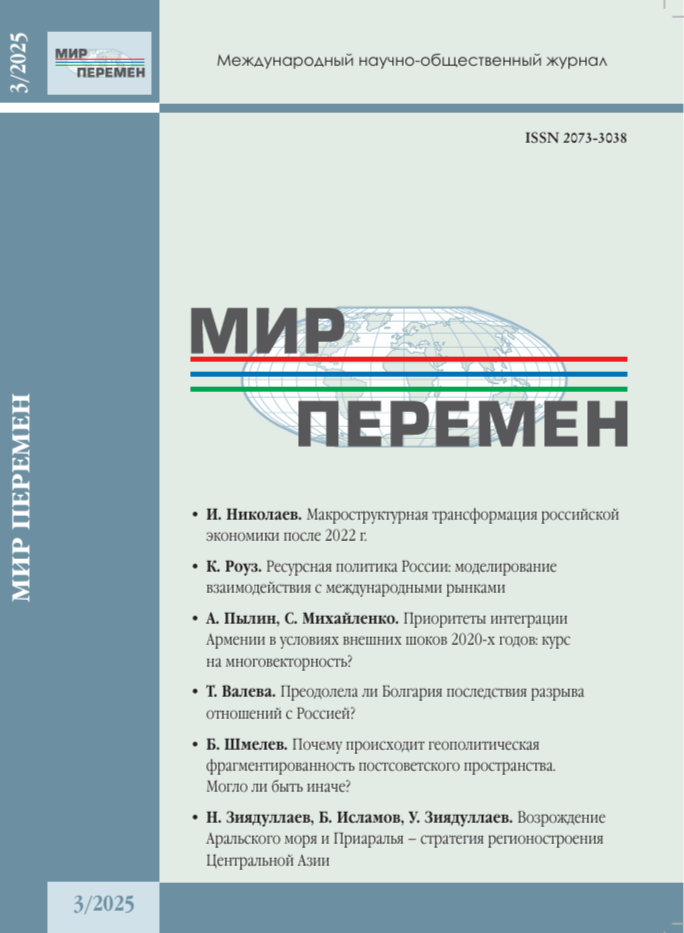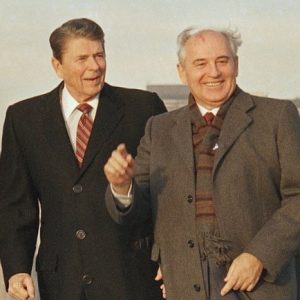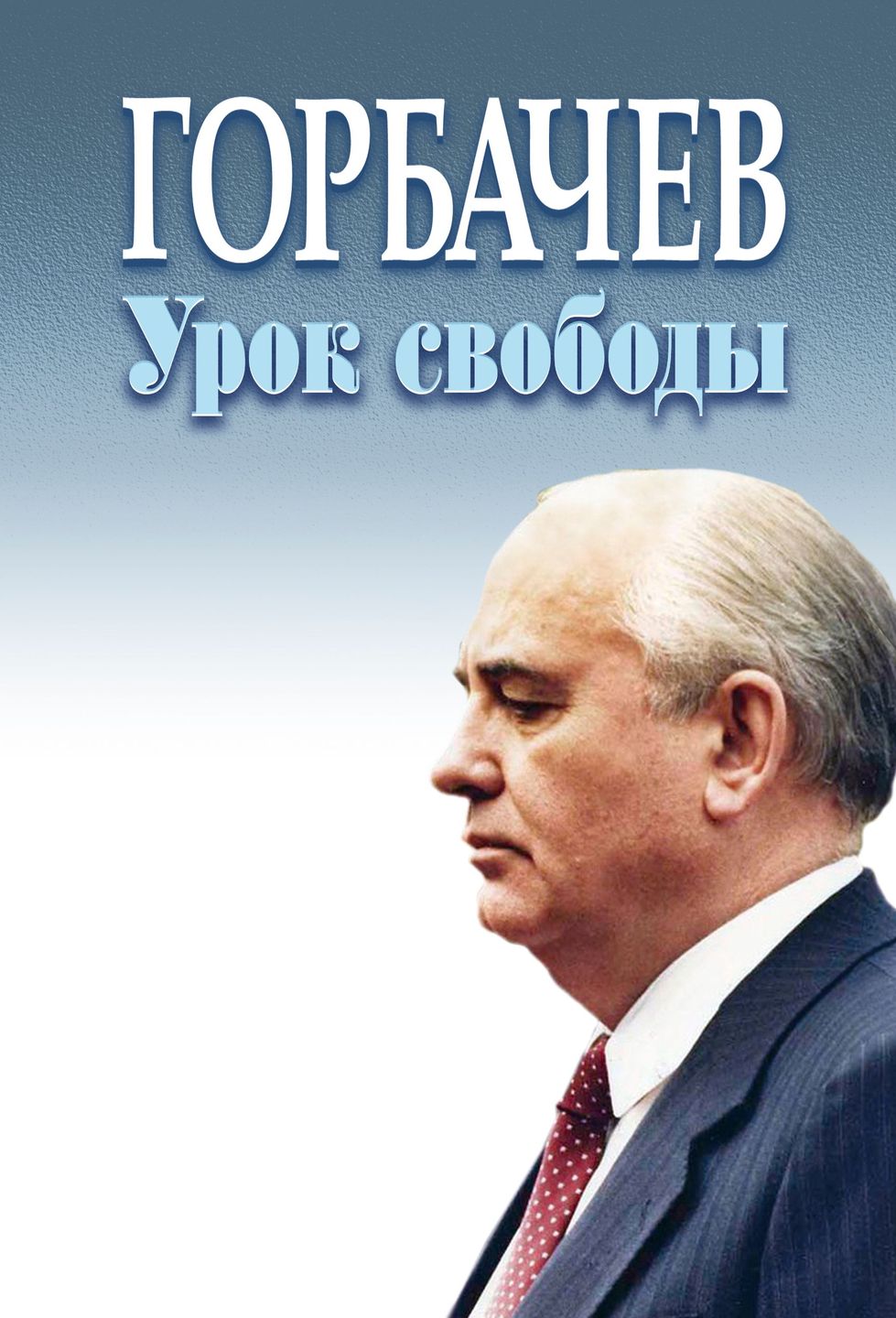Мир перемен. 2025. № 3
Мир перемен. 2025. № 3.
- содержание резюме contents summary
СОДЕРЖАНИЕ
Непонятый пророк
М. Горбачев. О новом мировом порядке (Выступление в Высшей школе менеджмента, Париж, 14 декабря 2001 г.)
М. Горбачев. Перестройке – 20 лет (Выступление при присуждении награды Экуменической Константинопольской патриархии, Нью-Йорк, 22 октября 2005 г.)
Экономика
И. Николаев. Макроструктурная трансформация российской экономики после 2022 г.
К. Роуз. Ресурсная политика России: моделирование взаимодействия с международными рынками (включая Приложение: исходный код программы, разработанной в ходе исследования)
Н. Зиядуллаев, Б. Исламов, У. Зиядуллаев. Возрождение Аральского моря и Приаралья – стратегия регионостроения Центральной Азии
А. Пылин, С. Михайленко. Приоритеты интеграции Армении в условиях внешних шоков 2020-х годов: курс на многовекторность?
Т. Валева. Преодолела ли Болгария последствия разрыва отношений с Россией?
Политика
Б. Шмелев. Почему происходит геополитическая фрагментированность постсоветского пространства. Могло ли быть иначе?
Публицистика
А. Ципко. Уроки коммунистического эксперимента в России (Об отличии марксизма В. Ленина от марксизма В. Сталина)
А. Матлин, А. Пученков. Президентство М. Горбачева в 1990–1991 г. (Заметки по истории завершающего этапа перестройки)
РЕЗЮМЕ
М. Горбачев. О новом мировом порядке
Выступление в Высшей школе менеджмента, Париж, 14 декабря 2001 г.
Ключевые слова: новый миропорядок, биполярное противостояние, глобализация, холодная война, разоружение, концепция однополярного мира, угрозы человечеству.
М. Горбачев. Перестройке – 20 лет
Выступление при присуждении награды Экуменической Константинопольской патриархии, Нью-Йорк, 22 октября 2005 г.
Ключевые слова: перестройка, права человека, безопасность, бедность, расслоение общества, экологические проблемы, свобода вероисповедания, закон о свободе совести.
И. Николаев. Макроструктурная трансформация российской экономики после 2022 г.
УДК: 330.552, 330.556
EDN: WVVZKT
DOI: 10.51905/2073–3038_2025_3_19
Проведенный анализ макроструктурных изменений в экономике России, произошедших после 2022 г., позволил выделить ряд тенденций, свидетельствующих, что в экономике уже происходят заслуживающие внимания трансформации. Среди выявленных изменений выделяется серьезное ослабление сырьевой направленности российской экономики. Однако это стало следствием не целевой работы в данном направлении, а вынужденной адаптации экономики в ситуации острейшего геополитического конфликта, стимулирующего реализацию вполне определенных приоритетов экономической политики. На данное структурное изменение серьезнейшим образом повлияли и санкции.
Не менее важна трансформация в структуре ВВП, оцениваемая по тому, что происходило с расходами на конечное потребление и валовое накопление, как менялась доля чистого экспорта в ВВП. В частности, уменьшение доли чистого экспорта ВВП России до уровня немногим более 4%, с одной стороны, является естественным следствием ослабления сырьевой направленности российской экономики. С другой стороны, это и тревожный знак, учитывая сохраняющуюся экспортную зависимость российской экономики.
Структурные изменения в экономике в масштабах страны, как правило, не происходят быстро. Однако бывают исключения. И российская экономика после 2022 г. является, по-видимому, одним из них.
Ключевые слова: структурные изменения, трансформация, метод использования доходов, ВВП по источникам доходов, отрасли.
Игорь Алексеевич Николаев – доктор экономических наук, главный научный сотрудник Института экономики РАН (г. Москва).
К. Роуз. Ресурсная политика России: моделирование взаимодействия с международными рынками (включая Приложение: исходный код программы, разработанной в ходе исследования)
УДК: 330, 341.1, 330.47
EDN: AUQTCM
DOI: 10.51905/2073–3038_2025_3_36
В статье представлена модель для определения параметров ресурсной политики России на основе сочетания динамики внешней торговли и внутренних экономических факторов, разработанная в рамках парадигмы функционального программирования на языке Scala. Исследование, основанное на принципах институциональной теории, рассматривает, каким образом российские институты влияют на способность реагировать на внешние шоки и формировать новые торговые альянсы за пределами западноцентричных международных структур. Результаты этой работы описывают возможные сценарии укрепления экономического суверенитета и обеспечения устойчивого экономического роста, подчеркивая важнейшую роль устойчивых и адаптивных внутренних институтов для смягчения внешних ограничений и использования новых возможностей.
Ключевые слова: ресурсная политика, функциональное программирование, институциональная теория, экономический рост, БРИКС, внешняя торговля, экономический рост, промышленное производство, экономическая информатика, язык программирования Scala.
Кристиан Брунович Роуз – ведущий инженер Института экономики и организации промышленного производства (ИЭОПП) СО РАН (г. Новосибирск).
Н. Зиядуллаев, Б. Исламов, У. Зиядуллаев. Возрождение Аральского моря и Приаралья – стратегия регионостроения Центральной Азии
УДК: 339.97, 334.726.
EDN: HTWOXN
DOI: 10.51905/2073–3038_2025_3_73
Аральское море было самым большим водоемом в Центральной Азии (ЦА) и ранее считалось четвертым по площади в мире. Его высыхание стало настоящей трагедией. Спасти Арал должен был проект «Поворот северных рек» – постройка водоносного канала из Западной Сибири в Казахстан и ЦА.
Предпринимались многочисленные попытки спасения моря, но они не получили должного развития и не стали важнейшей частью нового регионостроения в ЦА, где численность населения к 2050 г. приблизится к 100 млн человек. Без политической воли странам мира тут не обойтись. Сейчас над решением проблемы работает Генеральная Ассамблея ООН, объявившая Приаралье зоной экологических инноваций и технологий.
В статье обосновываются стратегические задачи мировых и региональных игроков, приоритетные направления по дальнейшему развитию Каракалпакстана и его северных регионов.
Ключевые слова: трагедия Аральского моря, переброска сибирских рек в ЦА, транспортно-логистическая инфраструктура, саммит культуры Арала, водосберегающие технологии, зеленая экономика Приаралья, изменение климата, глобальные и региональные стратегии.
Наби Саидкаримович Зиядуллаев – заслуженный деятель науки России, член-корреспондент АН Узбекистана, главный научный сотрудник Института региональных экономических отношений, главный научный сотрудник НИИ статистики Росстата (г. Москва).
Бахтиер Анварович Исламов – доктор экономических наук, профессор Ташкентского филиала РЭУ им. Г. В. Плеханова, Чрезвычайный и полномочный посол Республики Узбекистан в России и Беларуси (2003-2008) (г. Ташкент).
Улугбек Саидкаримович Зиядуллаев – доктор экономических наук, депутат Ташкентского городского собрания, управляющий Чиланзарским филиалом АИКБ «Ипак Йули» (г. Ташкент).
А. Пылин, С. Михайленко. Приоритеты интеграции Армении в условиях внешних шоков 2020-х годов: курс на многовекторность?
УДК: 339.5, 339.9.
EDN: YEEWYU
DOI: 10.51905/2073–3038_2025_3_96
Республика Армения (РА), будучи страной с малой открытой экономикой, сильно зависит от влияния внешних факторов и вынуждена ориентироваться на углубленные экономические связи с крупными державами и региональными интеграционными объединениями. За годы независимости внешнеэкономические приоритеты Армении претерпевали серьезные изменения под влиянием глобальных факторов и происходящих на Южном Кавказе региональных событий. В условиях геополитической турбулентности 2020-х годов в Армении вновь активизировались дискуссии относительно приоритетов региональной интеграции.
После отказа от евроинтеграции и провозглашения в 2013 г. евразийского курса, связанного с членством республики в Евразийском экономическом союзе (ЕАЭС), в Армении вновь рассматривается возможность углубления интеграции с Европейским союзом (ЕС) на фоне общего стремления к диверсификации внешних связей. В то же время отмечается некоторая неопределенность в развитии российско-армянских межгосударственных отношений в условиях небывалого роста торгового взаимодействия двух стран.
Ключевые слова: Армения, Россия, ЕАЭС, ЕС, «страна-мост», стратегическое партнерство, внешние шоки, многовекторность, внешняя торговля, диверсификация, санкции, геополитическая напряженность.
Артем Геннадьевич Пылин – кандидат экономических наук, доцент, ведущий научный сотрудник ИЭ РАН (г. Москва).
Сергей Геннадиевич Михайленко – аспирант ИЭ РАН (г. Москва).
Т. Валева. Преодолела ли Болгария последствия разрыва отношений с Россией?
УДК: 327
EDN: WDDMYA
DOI: 10.51905/2073–3038_2025_3_111
Последние три года оказались критическими для отношений России и Болгарии. София, следуя в фарватере своих евроатлантических партнеров, приложила максимум усилий для разрыва экономических связей и политических контактов с Москвой, что оказало существенное долгосрочное влияние на ее социально-экономическое развитие, способствовало пролонгации внутриполитического кризиса.
Ключевые слова: падение производства, внешняя торговля, энергетика, внутриполитические противоречия, зона евро.
Татьяна Эмильевна Валева – кандидат географических наук, старший научный сотрудник Центра Восточноевропейских исследований ИЭ РАН (г. Москва).
Б. Шмелев. Почему происходит геополитическая фрагментированность постсоветского пространства. Могло ли быть иначе?
УДК: 321.01;323.2
EDN: HHLTQL
DOI: 10.51905/2073–3038_2025_3_127
В статье рассматриваются причины геополитической фрагментированности постсоветского пространства и формы ее проявления. Этот процесс начался с момента образования СНГ и продолжается по сей день. Отмечается, что постсоветские государства в рамках политики многовекторности стремятся сбалансировать влияние России развитием многообразного сотрудничества с другими внерегиональными центрами силы, которые охотно идут на укрепление своих позиций в регионе. Особенно активно в этом направлении действуют страны – члены ЕС и НАТО, проводя политику нанесения стратегического поражения России в условиях украинского кризиса.
Автор приходит к выводу, что, несмотря на все усилия, предпринимаемые Москвой, и заметную активизацию ее политики в регионе, остановить процесс геополитической фрагментации постсоветского пространства не удается. Постсоветские государства, за небольшим исключением, весьма сдержанно относятся к стремлению РФ построить многополярный мир, не одобряют проводимую ею на Украине специальную военную операцию (СВО).
Основная гипотеза, выдвигаемая автором в статье, заключается в том, что без сохранения геополитической целостности постсоветского пространства и закрепления за Россией роли главного центра геополитического и, соответственно, геоэкономического притяжения РФ не сможет утвердиться в мире как один из полюсов влияния в современных международных отношениях и предлагаемая ею концепция многополюсности не принесет нашей стране тех дивидендов, на получение которых она рассчитывает.
По мнению автора, ответом на вызовы, с которыми Россия сталкивается на постсоветском пространстве, может быть успешное социально-экономическое развитие, превращение в мощный центр знаний, инноваций и созданных на этой основе новейших технологий.
Ключевые слова: геополитика, геополитическая фрагментация, интеграция, суверенитет, многовекторность, многополярность, ЕС, НАТО, СНГ, ЕАЭС, постсоветские страны, постсоветское пространство.
Борис Александрович Шмелев – доктор исторических наук, главный научный сотрудник Института экономики РАН (г. Москва).
А. Ципко. Уроки коммунистического эксперимента в России (Об отличии марксизма В. Ленина от марксизма В. Сталина)
УДК: 323.2
EDN: JYCHKY
DOI: 10.51905/2073–3038_2025_3_149
Русская трагедия ХХ в. состоит в том, что понимание утопичности марксистского учения возникло у его авторов – К. Маркса и Ф. Энгельса – еще в конце XIX в. Уже тогда стало очевидно: в развитии капитализма нет ничего, что подтверждало бы идею К. Маркса о необходимости поворота истории в сторону коммунизма.
В статье впервые предпринята попытка показать различие между истоками революционизма В. Ленина и И. Сталина. Показано, что В. Ленин, как догматик, всегда оставался верным марксизму-ленинизму и его практика насилия не выходила за рамки учения К. Маркса о пролетарской революции. Сталинский же террор был порожден особенностями психологии вождя. Также предпринята попытка подтвердить мнение «веховцев», что российский коммунизм не был извращением марксизма, наоборот, стал выражением его подлинной сути.
Ключевые слова: марксизм-ленинизм, Сталин, Ленин, Троцкий, капитализм, коллективизация, большевики, Маркс, Энгельс, сталинские репрессии, шестидесятники, хрущевская оттепель, перестройка.
Александр Сергеевич Ципко – доктор философских наук, главный научный сотрудник Института экономики РАН (г. Москва).
А. Матлин, А. Пученков. Президентство М. Горбачева в 1990–1991 г. (Заметки по истории завершающего этапа перестройки)
УДК: 93/94; 323.172; 323.276.
EDN: RVPKJU
DOI: 10.51905/2073–3038_2025_3_
В 2025 г. исполнилось 35 лет с момента учреждения в нашей стране поста президента. Возникновение института президентства следует связывать с именем Михаила Сергеевича Горбачева. Именно он был единственным президентом СССР – страны, правопреемником которой на международной арене стала Россия. С отставкой М. Горбачева страница истории нашего Отечества, связанная с реализацией беспримерно амбициозного советского проекта, была перевернута. М. Горбачев занимал пост президента СССР совсем недолго, всего 650 дней – с 15 марта 1990 до 25 декабря 1991 г.
Ключевые слова: президент СССР, президент России, путч ГКЧП, Беловежские соглашения, распад СССР, Борис Ельцин, Михаил Горбачев.
Александр Дмитриевич Матлин – преподаватель кафедры истории и философии гуманитарного факультета СПб ГУАП; сотрудник Русской христианской гуманитарной академии имени Ф. М. Достоевского (г. Санкт-Петербург).
Александр Сергеевич Пученков – профессор кафедры истории и философии гуманитарного факультета СПб ГУАП; сотрудник Русской христианской гуманитарной академии имени Ф. М. Достоевского (г. Санкт-Петербург).
Contents
The Misunderstood Prophet
M. Gorbachev. About the New World Order (Speech at the Graduate School of Management, Paris, December 14, 2001)
M. Gorbachev. Perestroika is Twenty Years Old (Presentation at the Award Ceremony of the Ecumenical Patriarchate of Constantinople, New York, October 22, 2005)
Economy
I. Nikolaev. Macrostructural Transformation of the Russian Economy after 2022
Kristian B. Rouz. Russia’s Resource Policy: Modeling Interaction with International Markets (including Appendix: the Source Code of the Program Developed During the Research)
N. Ziyadullaev, B. Islamov, U. Ziyadullaev. The Revival of the Aral Sea and the Aral Sea Region: the Strategy of Regional Development in Central Asia
A. Pylin, S. Mikhailenko. Priorities of Armenia’s Integration in the Context of External Shocks of the 2020-s Years: a Course Towards Multi-Vectorism?
T. Valeva. Has Bulgaria Overcome the Consequences of Breaking off Relations with Russia?
Politics
B. Shmelev. Why is there Geopolitical Fragmentation in the Post-Soviet Space? Could it have been Different?
Publicism
A. Tsipko. The Lessons of the Communist Experiment in Russia (On the Difference between Lenin’s Marxism and Stalin’s Marxism)
A. Matlin, A. Puchenkov. Mikhail Gorbachev’s Presidency in 1990-1991 (Notes on the History of the Final Stage of Perestroika)
Summary
M. Gorbachev. About the New World Order
Annotation: Before talking about the world order, it is worth trying to assess what is happening in the world and with the world right now. The end of the cold war and the bipolar confrontation on the world stage gave a powerful impetus to the development of globalization processes and, above all, its economic basis. Having replaced the confrontation between two socio-economic systems – capitalism and socialism, which was the mainspring of international relations in the second half of the twentieth century, globalization has now become the dominant trend in global development. Obviously, globalization is an objective process that cannot be stopped or reversed. And in many ways, it is undoubtedly positive, because it contains great opportunities. Globalization strengthens the interconnection and interdependence of States, nations, peoples, regions and continents, and thereby opens up objective prerequisites for cooperation and joint search for answers to the main problems facing humanity today.
Keywords: new world order, bipolar confrontation, globalization, cold war, disarmament, the concept of a unipolar world, threats to humanity.
Mikhail S. Gorbachev – General Secretary of the Central Committee of the CPSU, the First and Last President of the USSR (Moscow).
М. Gorbachev. Perestroika is Twenty Years Old
Annotation: Presentation at the Award Ceremony of the Ecumenical Patriarchate of Constantinople, New York, October 22, 2005
Annotation. Man, his rights, and the dignity of the human person – these concepts and ideas were at the heart of the historical movement that became known as perestroika. The twentieth anniversary of the beginning of this process, celebrated this year, has naturally become the main topic of my current trip to the United States.
Today, in order to create conditions for ensuring human rights, it is necessary, first of all, to provide answers to the three main challenges that humanity has faced in the 21st century. This is a security challenge. To answer it means to ensure the non–proliferation of weapons of mass destruction, to follow the path of their elimination. It also means curbing terrorism, which encroaches on the main human right – the right to life. This is a challenge to poverty and underdevelopment. This is an environmental crisis challenge. The state of the human habitat continues to deteriorate rapidly: 60% of ecosystems are seriously disrupted. Scientists’ verdict: if current trends are not stopped, in thirty to forty years the degradation of the biosphere will become irreversible.
These three challenges are interrelated. It is impossible to find solutions if you act by inertia. We need to overcome inertia in politics, in thinking, in management methods. And for this, first of all, it is necessary to show political will. The key is here!
Keywords: perestroika, human rights, security, poverty, social stratification, environmental issues, freedom of religion, the law on freedom of conscience.
Mikhail S. Gorbachev – General Secretary of the Central Committee of the CPSU, the First and Last President of the USSR (Moscow).
I. Nikolaev. Macrostructural Transformation of the Russian Economy after 2022
Annotation: The conducted analysis of macrostructural changes in the Russian economy that took place after 2022 allowed us to identify a number of trends that indicate that the economy is already undergoing noteworthy transformations. Among the identified changes, a significant weakening of the raw materials focus of the Russian economy stands out. However, this was not a consequence of targeted work in this direction, but of the forced adaptation of the economy in a situation of an acute geopolitical conflict, stimulating the implementation of very specific priorities of economic policy. Sanctions also had a major impact on this structural change. No less important is the transformation in the structure of GDP, assessed by what happened to final consumption expenditure and gross accumulation, how the share of net exports in GDP changed. In particular, a decrease in the share of net exports of Russia’s GDP to a level of just over 4%, on the one hand, is a natural consequence of the weakening of the raw materials focus of the Russian economy. However, on the other hand, this is an alarming sign, given the continuing export dependence of the Russian economy. Structural changes in the economy on a national scale, as a rule, do not occur quickly. However, there are exceptions. And the Russian economy after 2022 is apparently one of them.
Keywords: structural changes, transformation, method of using income, GDP by income sources, industries.
Igor A. Nikolaev – Dr. Sci. (Econ.), Chief Researcher of the Institute of Economics of the Russian Academy of Sciences (Moscow).
Kristian B. Rouz. Russia’s Resource Policy: Modeling Interaction with International Markets (including Appendix: the Source Code of the Program Developed During the Research)
Annotation. The article proposes a model for determining the parameters of Russia’s resource policy based off the dynamics of foreign trade and domestic economic factors, developed within the framework of functional programming in Scala. The study, based on principles of institutional theory, examines how Russian institutions influence the country’s ability to respond to external shocks and form new trade alliances outside Western-centric international structures. The results of this paper outline possible scenarios for strengthening economic sovereignty and ensuring sustainable economic growth, while also highlighting the critical role of resilient and adaptive domestic institutions in mitigating external constraints and exploiting new opportunities.
Keywords: resource policy, functional programming, institutional theory, economic growth, BRICS, foreign trade, economic growth, industrial production, economic informatics, Scala programming language.
Kristian B. Rouz – Lead engineer, Institute of Economics and Industrial Engineering, Siberian Branch of the Russian Academy of Sciences.
N. Ziyadullaev, B. Islamov, U. Ziyadullaev. The Revival of the Aral Sea and the Aral Sea Region: the Strategy of Regional Development in Central Asia
Annotation. The Aral Sea was the largest body of water in Central Asia (CA) and was previously considered the fourth largest in the world. His desiccation was a real tragedy. The Turn of the Northern Rivers project, the construction of an aquifer from Western Siberia to Kazakhstan and Central Asia, was supposed to save the Aral Sea.
Numerous attempts have been made to save the sea, but they have not been properly developed and have not become an important part of the new regional development in Central Asia, where the population will approach 100 million people by 2050. The countries of the world cannot do without political will.. The UN General Assembly is currently working to solve the problem, declaring the Aral Sea region a zone of environmental innovation and technology.
The article substantiates the strategic objectives of global and regional players, priority directions for the further development of Karakalpakstan and its northern regions.
Keywords: the tragedy of the Aral Sea, the transfer of Siberian rivers to Central Asia, transport and logistics infrastructure, the summit of culture of the Aral Sea, water-saving technologies, the green economy of the Aral Sea region, climate change, global and regional strategies.
Nabi S. Ziyadullaev – an Honored Scientist of Russia, Corresponding Member of the Academy of Sciences of Uzbekistan and Chief Researcher at the Institute for Regional Economic Research and the Rosstat Statistics Institute (Moscow).
Bakhtiyor A. Islamov – Doctor of Economic Sciences, professor at the Tashkent Braпch of the Plekhanov Russian University of Economics, Ambassador Extraordinary and Plenipotentiary of Uzbekistan to Russia and Belarus (2003–2008) (Tashkent).
Ulugbek S. Ziyadullaev – Doctor of Economic Sciences and Manager of the Tashkent Branch of Ipak Yuli Bank of Uzbekistan (Tashkent).
.
A. Pylin, S. Mikhailenko. Priorities of Armenia’s Integration in the Context of External Shocks of the 2020-s years: a Course Towards Multi-vectorism?
Annotation. The Republic of Armenia (RA), being a country with a small open economy, is highly dependent on the influence of external factors and is forced to focus on deep economic ties with major powers and regional integration associations. Over the years of independence, Armenia’s foreign economic priorities have undergone significant changes under the influence of both global factors and regional events taking place in the South Caucasus. In the context of the geopolitical turbulence of the 2020s, discussions regarding the priorities of regional integration have once again intensified in Armenia. After abandoning European integration and proclaiming the Eurasian course in 2013, associated with the Republic’s membership in the Eurasian Economic Union (EAEU), Armenia is again considering the possibility of deepening integration with the European Union (EU) against the backdrop of a general desire to diversify external relations. At the same time, there is some uncertainty in the development of Russian-Armenian interstate relations in the context of an unprecedented growth in trade cooperation between the two countries.
Keywords: Armenia, Russia, EAEU, EU, «bridge nations», strategic partnership, external shocks, multi-vector, foreign trade, diversification, sanctions, geopolitical tensions.
Artem G. Pylin – Cand. Sci. (Econ.), Docent, Leading Researcher, Institute of Economics, Russian Academy of Sciences (Moscow).
Sergey G. Mikhailenko – graduate student, Institute of Economics, Russian Academy of Sciences (Moscow).
T. Valeva. Has Bulgaria Overcome the Consequences of Breaking off Relations with Russia?
Abstract. The last three years have been critical for relations between Russia and Bulgaria. The leadership of Bulgaria, following in the wake of its Euro-Atlantic partners, made every effort to break economic ties and political contacts with Russia, which had a significant long-term impact on its socio-economic development, contributed to the prolongation of the internal political crisis. The titanic efforts of the country’s leadership have led to the almost complete curtailment of foreign trade with Russia and the completion of joint participation projects. The fall of Russian exports to Bulgaria in 2024, after the termination of supplies of Russian oil for the Lukoil refinery represented 600 million euro (falling by 81%), Bulgarian exports to Russia decreased by 370 million euro (falling by 28%).
The «successes» of the Bulgarian side, which has abandoned ties with Russia, are very insignificant. Total Bulgarian exports continued the downward trend (-2,3%), imports slightly increased (by 0,3% due to Turkey, the increase in imports from which increased by 12,2%). With a further negative trend in industrial production (by 3,1%) and a fall in FDI by 42,9%, GDP growth of 2,8% was mainly ensured by growth of 12,6% of domestic consumption, which, in turn, was determined by an increase in wages, pensions, social payments, which was not linked with the growth of labor productivity. The Maastricht debt increased by 15,2%.
Keywords: production decline, foreign trade, energy, internal political contradictions, euro area.
Tatiana E. Valeva – Candidate of geographical sciences, lead researcher of the Centre of the East European Studies, Institute of Economics, Russian academy of Sciences.
B. Shmelev. Why is there Geopolitical Fragmentation in the Post-Soviet Space? Could it have been Different?
Abstract. The article discusses the reasons for the geopolitical fragmentation of the post-Soviet space and the forms of its manifestation. This process began with the formation of the CIS and continues to this day. The article notes that post-Soviet states, in the framework of their multivector policy, strive to balance Russia’s influence by developing diverse cooperation with other extra-regional power centers, which are eager to strengthen their positions in the region. EU and NATO member countries, in particular, act actively in this direction, pursuing a policy of delivering a strategic defeat to Russia amid the Ukrainian crisis. The author concludes that despite all the efforts made by Moscow and the noticeable intensification of its policy in the region, it has not been possible to stop the process of geopolitical fragmentation of the post-Soviet space. Post-Soviet countries, with few exceptions, are quite restrained in their attitude towards Russia’s desire to build a multipolar world and do not approve of the Special Military Operation it is conducting in Ukraine.
The main hypothesis put forward by the author in the article is that without maintaining the geopolitical integrity of the post-Soviet space and securing Russia’s role as the main center of geopolitical and, consequently, geo-economic attraction, Russia will not be able to assert itself in the world as one of the poles of influence in modern international relations, and the concept of multipolarity it proposes will not yield the dividends it expects.
According to the author, Russia’s response to the challenges it faces in the post-Soviet space could be its successful socio-economic development, transforming into a powerful center of knowledge, innovations, and the latest technologies created on this basis.
Keywords: geopolitics, geopolitical fragmentation, integration, sovereignty, multi-vector, multipolarity, EU, NATO, CIS, EAEU, post-Soviet countries, post-Soviet space
Boris A. Shmelev – Doctor of Historical Sciences, Chief Researcher at the Institute of Economics of the Russian Academy of Sciences (Moscow).
A. Tsipko. The Lessons of the Communist Experiment in Russia (On the Difference between Lenin’s Marxism and Stalin’s Marxism)
Annotation. The Russian tragedy of the twentieth century lies in the fact that the understanding of the utopian nature of Marxist doctrine arose among its authors, K. Marx and F. Engels, back in the late 19th century. It became obvious even then that there was nothing in the development of capitalism that would confirm K. Marx’s idea of the need for history to turn towards communism.
For the first time, an attempt was made to show the difference between the origins of V. Lenin’s and I. Stalin’s revolutionism. It is shown that V. Lenin, as a dogmatist, always remained faithful to Marxism-Leninism and his practice of violence did not go beyond the teaching of K. Marx on the proletarian revolution. Stalin’s terror was generated by the peculiarities of the leader’s psychology.
An attempt was also made to confirm the opinion of the «Vekhovites» that Russian communism was not a perversion of Marxism, on the contrary, an expression of its true essence.
Keywords: Marxism-Leninism, Stalin, Lenin, Trotsky, capitalism, collectivization, Bolsheviks, Marx, Engels, Stalinist repressions, Sixties, Khrushchev thaw, perestroika.
Alexander S. Tsipko – Doctor of Philosophical Sciences, Chief Researcher at the Institute of Economics of the Russian Academy of Sciences (RAS).
A. Matlin, A. Puchenkov. Mikhail Gorbachev’s Presidency in 1990–1991 (Notes on the History of the Final Stage of Perestroika)
Abstract. 2025 marks the 35th anniversary of the establishment of the post of President in our country. The emergence of the institution of the presidency should be associated with the name of Mikhail Sergeevich Gorbachev. He was the only President of the USSR, a country whose successor in the international arena was Russia. With the resignation of Mikhail Gorbachev, a page in the history of our Fatherland related to the implementation of an incomparably ambitious Soviet project was turned over. Mikhail Gorbachev held the post of President of the USSR for a very short time – only 650 days: from March 15, 1990 to December 25, 1991.
Keywords: President of the USSR, President of Russia, the State Emergency Committee putsch, the Belovezh Accords, the collapse of the USSR, Boris Yeltsin, Mikhail Gorbachev
Alexander D. Matlin – a lecturer at the Department of History and Philosophy of the Faculty of Humanities of Saint-Petersburg State University of Aerospace Instrumentation; an employee of the Russian Christian Academy for Humanities named after Fyodor Dostoevsky (St. Petersburg).
Alexander S. Puchenkov – a professor at the Department of History and Philosophy of the Faculty of Humanities of Saint-Petersburg State University of Aerospace Instrumentation; an employee of the Russian Christian Academy for Humanities named after Fyodor Dostoevsky (St. Petersburg).

